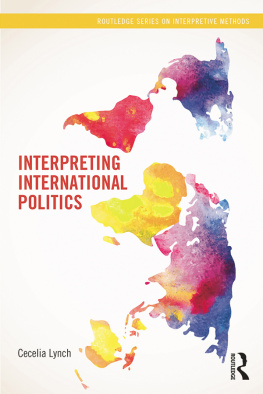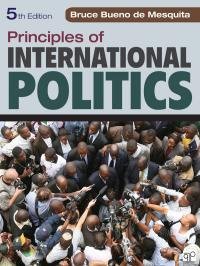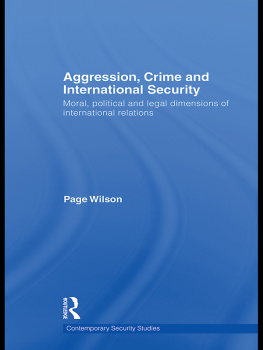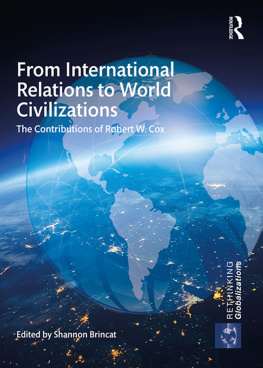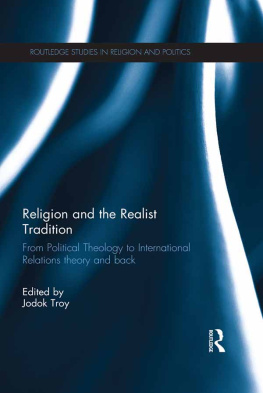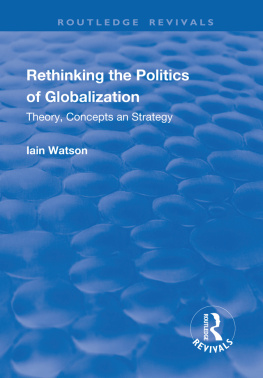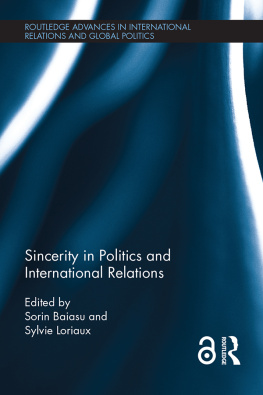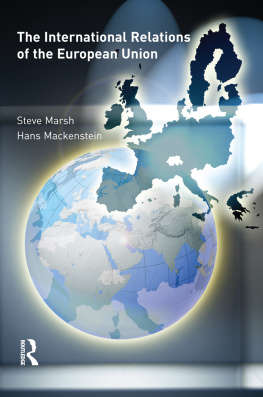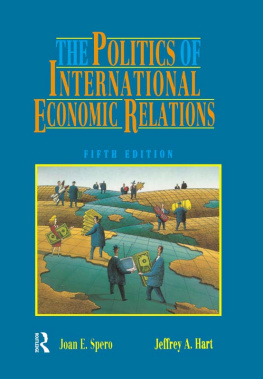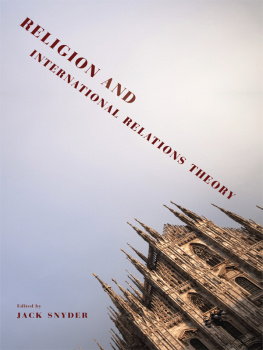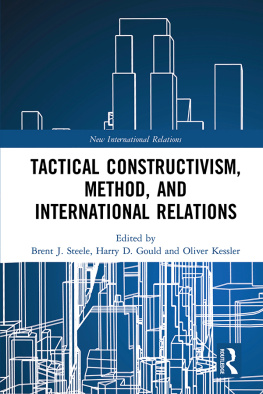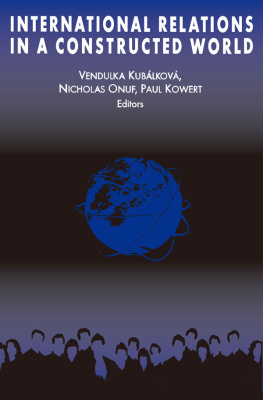1
Interpretive Concepts, Goals, and Processes in International Relations
What kinds of research in IR are interpretive?
What are the primary concepts and goals guiding interpretive research in IR?
How is interpretivism in IR different from logical positivist or critical rationalist work?
How are responses to these questions incorporated into interpretivist research in the major subfields of IR?
Interpretive research is alive, well, and expanding in international relations, examining an increasing range of substantive, theoretical, and conceptual problems. Interpretivists, for example, challenge conventional understandings of international security for promoting militarized solutions to conflicts and creating gendered hierarchies of issues considered to be significant for international politics. They call into question the liberal assumptions of truisms regarding wealth generation and poverty relief, pointing out the voices and societies left out of these assumptions. They trace the genealogy of international legal norms and institutions to demonstrate their racialized nature in contexts of decolonization. They analyze the linguistic properties, rules and norms, discourse and power relations involved in the construction and maintenance of these and a host of other practices and processes in international relations. This chapter discusses the reasons for and bases of interpretive work in IR, focusing on its goals, its differences with non-interpretive research, and the substantive problems in world politics that have prompted its various forms to take hold. In addressing these issues, the chapter also explicates the major questions in philosophy of science and social theory that make interpretive research possible, necessary, and valid.
Interpretivism has a long history in IR, although one might be forgiven today for not recognizing it. IR as a discipline was founded in Progressive Era desires to professionalize social knowledge (late nineteenthearly twentieth century, see
The development of nineteenth and early twentieth century social theory was also critical for interpretive work in international relations. Marx and Engels created the field of critical political economy, late nineteenth century theorists such as Wilhelm Dilthey articulated the bases of hermeneutics for the philosophy of science, early twentieth century social theorists, especially Max Weber, blazed new paths in understanding the forms of rationalization that were characteristic of modernity, and critical theorists in the Frankfurt School connected disciplinary to political forms of power and demonstrated the dangers of their normalization. Similarly, Antonio Gramsci incorporated culture and phenomenology into Marxist analysis through developing his concept of ideological and cultural hegemony, and Friedrich Nietzsche probably went the farthest in blasting open the boundaries of ethical debate through his unrelenting critique of moral foundationalism (Der Derian 1987; Gill 1993; Cox 1996). IR scholars would draw on these and many other thinkers throughout the twentieth and into the twenty-first centuries (for a more comprehensive treatment than there is space for here, see Edkins and Vaughan-Williams 2009, and Roach 2008).
Interpretivist scholarship continued to develop during and after the Second World War, including by British writers and diplomatic historians (E.H. Carr, Martin Wight and Herbert Butterfield, among others), political sociologists such as Raymond Aron in France, and across the Atlantic, Karl Polanyi and Albert Wolfers. Each of these scholars related political and economic phenomena to historical and cultural contexts in ways that placed the variability of meaning at the forefront of analysis. Polanyi assessed the constitutive nature of the development of market, state, and culture in his seminal work, The Great Transformation (1944), while Wolfers (as discussed in the next chapter), acknowledged the ambiguity of the symbol of national security in an influential World Politics journal article (Wolfers 1952).
Thus far most of the interpretive debates and insights I have pointed to were carried out by white men in Europe and North America. Yet, interpretive interventions that shape IR come from a larger group of thinkers and scholars and .
Nor has feminism been absent from the earliest debates in IR. Feminist writers from Virginia Woolf in the 1920s to Simone Weil in the 1930s to Simone de Beauvoir in the 1940s and Elise Boulding in the 1970s made critical interventions that informed IR scholarship directly or indirectly, by challenging assumptions underlying the gendered nature of war, peace, property rights, and ethics. Feminist postcolonial theorists more recently have altered the nature of gender debates in the field. Their insights demonstrate, for example, how the theories of the colonizers dismiss the voices and experiences of the subaltern, challenging liberal feminist assumptions regarding what constitutes womens oppression and influencing much contemporary postpositivist work (Spivak 1988, 1998; Kinnvall 2009). Finally, feminist research on science and philosophy has expanded interpretive IR understandings of the gendered nature of knowledge production to incorporate the concept of embodied knowledge (Haraway 2003).
This somewhat eclectic genealogy shows that if international relations has forgotten to a large extent its interpretivist origins and history, contemporary students interested in interpretivism should return to it for inspiration and validation regarding their assumptions, concepts, and frameworks. Interpretivists in IR appeal to a wide range of philosophers and social theorists to provide the ontological and epistemological bases for their research questions. Nineteenth and twentieth century social theory and philosophy of science shape contemporary interpretivism, but many scholars trace their concerns to ancient and medieval as well as modern theorists. Bringing in ethics, virtue, and the political nature of humans takes us back to Aristotle and the Greeks as well as Cicero and the Romans, moving through early and medieval Christian, Jewish and Muslim thought (e.g. Augustine, Maimonides, Ibn Khaldun), to Kant, Nietzsche, and Arendt. Debates about cosmopolitanism, law and world government, and peace and conflict return us to Hobbes, Kant, Grotius, and Vitoria.Bourdieu. Finally, decentering the West requires critical and postcolonial analyses that draw on insights from Marx but move on to Gramsci, Fanon, Spivak, and Said, among others (Edkins and Vaughan-Williams 2009).
These and other scholars, writers, public intellectuals, and activists have articulated concepts and developed ways of thinking that allow interpretivists in international relations to explore the meaning of relations of power, race, gender, and class, the process of constructing otherness, the difference between ideal-typical classification schemes and historical layering, and the possibilities and constraints of ethical intentionality and moral action. As a result, interpretive IR continues to expand into new territories, literal and figurative.
Concepts and Goals of Interpretive Research in International Relations
The historiography of IR demonstrates that it was largely founded and developed as an interpretivist discipline. In focusing on how meanings are made, interpretivists have challenged taken-for-granted assumptions and orthodoxies, raised new questions, and articulated new ways of examining old questions. They have made visible the workings of power that orthodoxies covered up, exposed the contradictions in conventional explanations of world politics, and brought new and marginalized voices into the analysis of power relations. They have pointed out the conceptual and empirical problems in pursing the goal of an elusive synthesis, either in cosmopolitan or theoretical terms. They have addressed important questions of ethics, either implicitly or explicitly. Some have maintained that the role of research should also be emancipatory, while others have disclaimed such goals. In either case, most have insisted on reflexivity, i.e., the injunction continually to reassess and reflect on their positionality in international relations research (Alcoff 1988), including how their situated identities are related to their political (and scholarly) projects, because this positionality is part and parcel of the process and content of knowledge construction. This means they provide insight into the sociology, historiography, and ethics of the discipline, raising new conceptual and substantive questions in the process. These features lead to issues regarding philosophies of science, the role of discourse, and the workings of power.

